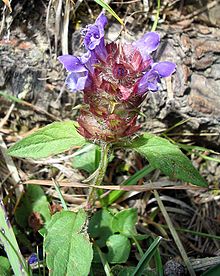Description
🚚 Fastest delivery time: 2-3 days delivery.
🐝 Supplier/Place of Origin: Guangxi, China
🔅 Certification: Non-Organic
🌱 Supplier Introduction: Food Your Health is a distinctive local online grocery shopping platform that works with more than 30 local farms and importers to offer more than 1,500 goods, including fruits and vegetables, meat, seafood, poultry and eggs.
Modern Guangxi and Guangdong were collectively called Lingnan in ancient times, which was the land of the ancient Baiyue. In 214 BC, the Qin army launched a large-scale invasion of Xiou and Luoyue (in present-day Guangxi). After the fall of Qin, Qin general Zhao Tuo established the Nanyue Kingdom in Lingnan. Guangxi is China's largest sugarcane, eucalyptus and sisal planting area, the largest citrus producing area, and the largest silkworm breeding area. Guangxi is rich in tropical fruits such as lychee, longan, mango, banana, citrus, and dragon fruit. Under the combined effects of solar radiation, atmospheric circulation and geographical environment, the climate is warm, with abundant heat, plentiful rainfall, distinct dry and wet seasons, inconspicuous seasonal changes, moderate sunshine, and short winters and long summers.
Important crops in Guangxi include rice, corn and sweet potatoes. Cash crops include sugarcane, peanuts, tobacco and kenaf.
85% of the world's star anise is produced in Guangxi. It is the main ingredient in the antiviral drug oseltamivir (brand name Tamiflu).
Guangxi is also China's longevity town: Bama Yao Autonomous County, which has more than 80 centenarians alive, was listed as the world's fifth longevity town at the 13th International Congress of Natural Medicine in Tokyo in 1991.
Guangxi is also the hometown of lychees in China: Lingshan County. In 1996, Lingshan County was awarded the title of "Hometown of Lychees in China" by the Organizing Committee of the Naming and Promotion Activity of China's Specialty Hometowns.
🛍Product Information:
Prunella vulgaris, the common self-heal, heal-all, woundwort, heart-of-the-earth, carpenter's herb, brownwort or blue curls, is a herbaceous plant in the mint family Lamiaceae.
ウツボグサ(靫草・空穂草・滁州夏枯草、学名: Prunella vulgaris subsp. asiatica)は、シソ科ウツボグサ属の多年生植物の1種。日当たりのよい山地に自生する。草丈30センチメートルほどで、地下茎を伸ばして殖える。夏に紫色の花穂をつけるが、花が終わると褐色に変化して枯れたように見える。漢方でも使われる薬用植物で、別名をカコソウ(夏枯草)、セルフヒールといって、利尿や消炎に用いられる。
Uses
Prunella vulgaris is edible. The young leaves and stems can be eaten raw in salads; the plant as a whole can be boiled and eaten as a leaf vegetable; and the aerial parts of the plant can be powdered and brewed in a cold infusion to make a beverage.
The herb, which is called xia ku cao (夏枯草) in Chinese, is used in traditional Chinese medicine to treat dizziness, red eyes, dry cough, and dermatitis and boils. It is also a main ingredient in several herbal teas in southern China, including commercial beverages such as Wong Lo Kat.
The Nlaka'pamux drink a cold infusion of the whole plant as a common beverage. The plant is traditionally used by some Indigenous cultures to treat various physical ailments.
利用
花後の枯れた穂は、利尿剤、うがい薬などに用いられる。若葉は食用にもなる。
薬用
花穂は6 – 8月の花が終わる枯れかかった頃に採集して、天日干しにしたものを日本・中国で夏枯草(カゴソウ)といい[9][10]、日本薬局方にある生薬で昔から漢方でも使われている[12]。主に中国、韓国で生産される。花穂にはウルソール酸(精油)、プルネリン(配糖体)、その他多量の塩化カリウム(無機塩類)、タンニンなどを含んでいる。塩化カリウムなどの無機塩類は体内の尿の出を良くする利尿作用があり、カリウムには体内の塩分(ナトリウム)を出させる作用がある[9]。タンニンには消炎作用と組織細胞を引き締める収斂作用があり、全体として消炎や利尿薬として用いられる。
民間療法では、腎炎、膀胱炎、脚気などでむくみがあるときに、夏枯草5 – 10 gを400 – 600 ccの水で半量になるまで煎じ、1日3回に分けて服用することで、尿の出を良くし、むくみの軽減や治りを早めるのに役立つとされる。茶のように煮出したいわゆる薬草茶で、クセがなく飲みやすいほうだといわれる。味患部の熱をとる力があり、膀胱炎で下腹部が温かく感じる人や、甲状腺腫やリンパ腺結核、目の充血や痛みで熱感がある人にはよいとされる[10]。ただし、患部が冷たいときや冷え性、妊婦への服用は禁忌とされている。
また、口内炎、口内のはれもの、のどの痛み、扁桃炎にも使用され、前記の煎液で1日数回にわけてうがいすることによって、タンニンの作用で腫れや痛みの緩和に役立つ[9]。
中国では、夏の暑気払いにお茶代わりに夏枯草を用いており、1cmほどに刻んで適宜水を加えて煮立てて飲用し、水分の補給と利尿により疲労回復を促すものと考えられている。 ヨーロッパにおいても民間薬に利用され、ウツボグサ及びタイリンウツボグサ(P. grandiflora Jacq.)を肺病や胃腸の病に用いた。
ハーブ
日本ではハーブティとして用いられ、また、止血作用と治癒促進作用があるとされ、外傷薬として古くから利用されてきた。強壮剤、うがい薬としても用いられる。ヨーロッパでは、自然治療を意味するセルフヒールという名で知られ、ハーブとして親しまれている。
Phytochemicals
Phytochemicals include betulinic acid, D-camphor, D-fenchone, cyanidin, delphinidin, hyperoside, manganese (not a phytochemical), lauric acid, oleanolic acid, rosmarinic acid, myristic acid, rutin, linoleic acid, ursolic acid, beta-sitosterol, lupeol, and tannins.

Traditional Chinese medicine believes that Prunella Vulgaris is pungent and bitter in nature, cold in nature, enters the liver and gallbladder meridians, is non-toxic, and the whole plant can be used as medicine. The above-ground part of the entire plant can treat bleeding gums, sore throat, hemorrhoids and excessive menstruation, and has bactericidal, astringent, wound healing and blood pressure lowering effects. The flower spike can activate the liver and gallbladder to treat mental stress and conjunctivitis caused by liver dysfunction, and has an astringent effect. The fruit clusters have the effects of dispersing nodules, reducing swelling, clearing heat and improving eyesight. They can treat facial paralysis, night pain in the eyes, red and swollen eyes, headache and dizziness, breast abscess and swelling and pain, and high blood pressure.
Prunella vulgaris is also one of the main raw materials for Guangdong herbal tea Xiasangju 夏桑菊 and WALOVI (粵拼:wong4 lou5 gat1)王老吉涼茶 herbal tea.
🥗 Recipe (English Version):
Google Recipe 🔍 :

English CookPad 🍳 :

BBC Good Food 🥙 :

🔅 Notes:
Precautions for use: Prunella vulgaris is cold in nature and can irritate the stomach. Therefore, people with weak spleen and stomach or qi deficiency should use it with caution and consult a Chinese medicine practitioner before drinking.
Some studies have shown that Prunella Vulgaris can cause adverse reactions. The ethanol extract of Prunella vulgaris can inhibit the cellular and humoral immune responses of mice. Subcutaneous injection can cause significant atrophy of the animal's thymus and spleen, and significant enlargement of the adrenal glands; intraperitoneal injection can significantly increase the plasma cortisol level and significantly reduce the number of peripheral blood lymphocytes. This indicates that Prunella Vulgaris may be an immunosuppressant, and long-term or large-scale consumption can suppress the body's immune function. Taking water extract of Prunella vulgaris can significantly increase the values of serum alanine aminotransferase and serum aspartate aminotransferase in mice, indicating that Prunella vulgaris has liver toxicity.














